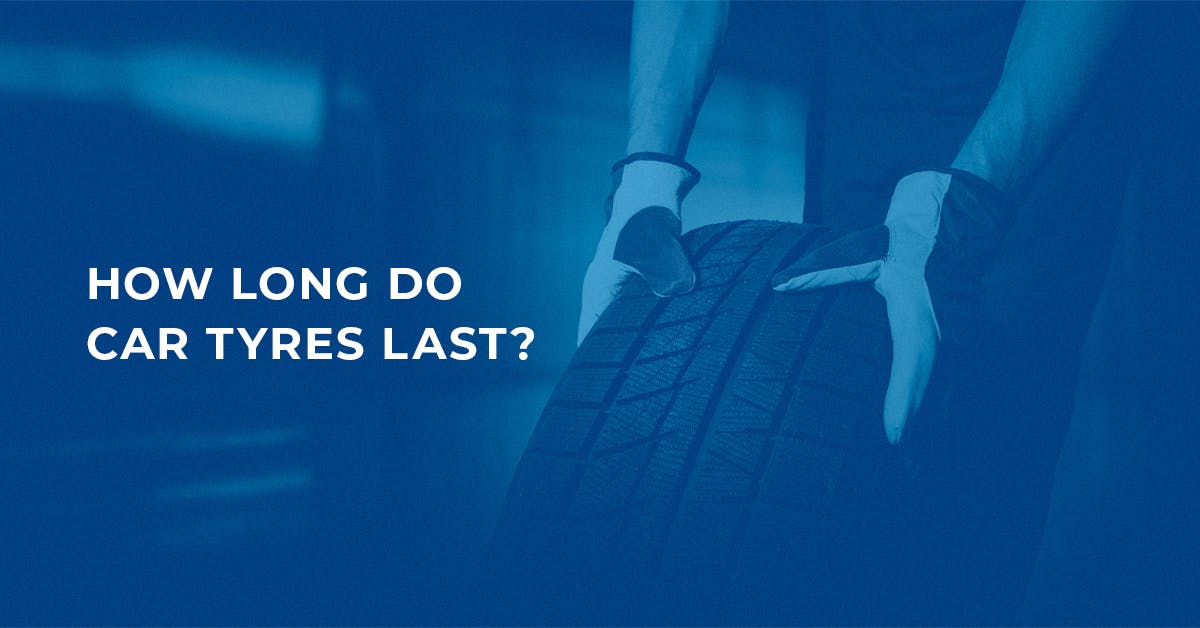Given that your tyres are the only point of contact between your car and the road, it is essential that you keep them in good condition.
That means replacing your tyres at the appropriate intervals to ensure you stay safe on the road.
Read on and find out how long tyres last, when you should change them and how to avoid premature tyre wear.
Page Contents
How Long Do Car Tyres Last?
Car tyres can last anywhere from 3 to 6 years if you regularly inspect them for signs of wear and damage.
That being said, the lifespan of your car’s tyres will vary depending on your driving habits, the quality of the tyres and the road conditions you tend to drive on.
Regular maintenance is also a factor in how long your tyres will last.
How Many Miles Should a Set of Car Tyres Last?
Generally speaking, you should get at least 20,000 miles out of your front tyres and 40,000 miles out of your back tyres.
When Should I Change My Tyres?
As 1.6mm is the legal tyre tread depth minimum in the UK – across three-quarters of the tread - you should change your tyres once they are approaching the 3mm mark.
You can carry out the 20p test to check your tyre tread depth.
If you notice any changes in your vehicle’s performance – such as longer braking distances – or any visible damage or uneven wear to your tyres, you should have them replaced even sooner.
If your tyres are 5 years or older, then you should also consider replacing them.
How Often Should Car Tyres Be Replaced?
Most tyre manufacturers recommend that you have your tyres replaced every 5 to 6 years.
Signs of Tyre Wear
The following signs of tyre wear can indicate that your tyres need to be replaced:
- Low tread depth
- Tread worn down to tread wear indicator
- Uneven tread wear
- Cracked tyre sidewall
- Tyre bulges
- Excessive vibration whilst driving
- Visible cord
- Decreased grip
- Tyre age
How to Avoid Premature Tyre Wear
To make your tyres last longer, you should ensure that they are always properly inflated.
Both over and under-inflated tyres can wear out faster as they won’t be able to sufficiently grip the road’s surface.
Proper wheel alignment and wheel balancing is also essential to reduce premature wear and tear.
Be sure to use quality tyres so that they meet MOT standards, too.
What Impacts a Tyre's Lifespan?
The following factors can all have an impact on the lifespan of your car’s tyres:
- Improper wheel alignment
- Out of balance wheels
- The weight of the vehicle
- Your driving style
- Your speed
- Under or over-inflated tyres
How Long Can a Spare Tyre Last?
Driving on a spare tyre should only ever be seen as a temporary solution that lets you make your way to a garage for help.
The maximum distance you can travel on a spare space saver tyre is normally approximately 50 miles, with the max speed being 50 miles an hour.
You should drive slower in wet weather.
You should check the condition, tread depth and pressure of your spare tyre regularly to ensure it is roadworthy if you ever need to use it.
If you have a spare tyre but you are not certain about its condition, best to call for roadside assistance instead.
How Old Are My Tyres?
If you want to locate your tyre expiry date, you can do so by taking a look at the tyre sidewall.
The 4-digit tyre age code located in a window on the tyre sidewall can tell you how old the tyre is.
The first 2 digits represent the week of production during the year (1 to 52) and the second 2 digits represent the year of manufacture.
For instance, if the window displays ‘4519’, this means that the tyre was manufactured in the 45th week of 2019.
Tyres printed with a 3-digit number were manufactured before 2000 and should be replaced immediately.
This information must be legible, or this could be considered an offence.
That’s why it’s so important that you check the condition of your tyres regularly.
Not only will this help you make sure that your tyre expiry date is still visible, but you can get a closer look at any tyre damage you may have otherwise missed.
While there is no set tyre age limit, you should absolutely replace your tyres once they are 7 to 10 years old.






